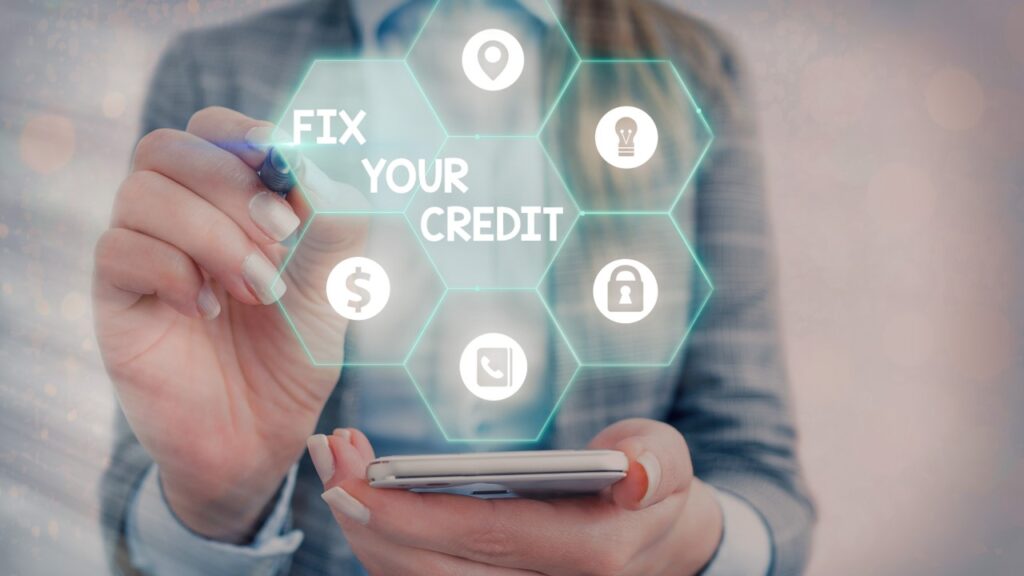Fast-track your credit recovery with proven methods that actually work
Bad credit can feel like a locked door—but with the right actions, you can improve bad credit and regain control over your financial future faster than you think.
Whether you’ve faced missed payments, defaults, or high credit usage, your score is not a life sentence. It can be repaired, and lenders will take notice of your progress.

What Is a UK Credit Score?
Discover the key factors lenders check when approving your credit. Take control of your score and unlock better financial opportunities.
A low credit score affects your ability to rent, borrow, or even get a mobile contract. But small, consistent actions can make a meaningful impact in just a few months.
When you begin to improve bad credit, it’s important to understand what changes matter most, how quickly results can appear, and which common mistakes to avoid during the process.
Why Bad Credit Happens (and How to Spot It)
Bad credit isn’t always caused by reckless behaviour. Sometimes, a single forgotten bill, financial hardship, or a lack of credit history is all it takes to lower your score.
The first step is awareness. You can’t fix what you don’t understand. Reviewing your credit report will reveal late payments, defaults, court judgments, or usage that hurt your score.
Even unused credit cards can hurt you if they’re inactive or carry high balances. Knowing where you stand puts you in control—and shows where you need to take action.
When you decide to improve bad credit, identifying the root causes is your starting point. Credit repair isn’t guesswork—it’s targeted effort focused on specific, measurable changes.
How to Improve Bad Credit in 8 Steps
These steps are designed to work together as a clear recovery plan. Focus on consistency, accuracy, and discipline—those are the pillars of lasting credit repair in the UK.
Each action below contributes to your score in different ways. Combined, they can transform your credit profile and boost your access to better financial opportunities over time.
1. Check Your Credit Report
Start by reviewing your file from all three UK credit reference agencies. Look for late payments, incorrect details, or accounts you don’t recognise.
Dispute errors immediately. Removing wrong information is one of the fastest ways to improve bad credit and protect yourself from identity fraud or outdated records.
2. Make All Payments On Time
Payment history is the most important factor in your score. Set up direct debits or reminders to ensure every bill is paid on or before the due date.
Even mobile bills count. A consistent payment pattern proves reliability to lenders—and that’s essential when trying to rebuild trust and reverse a negative score history.
3. Lower Your Credit Utilisation
Aim to use less than 30% of your available credit. High balances signal financial stress and hurt your score, even if you’re paying the minimum on time.
Spread spending across accounts, pay off balances early, and request limit increases if appropriate. These small moves all help to improve bad credit without taking on more debt.
4. Register on the Electoral Roll
Being on the electoral roll helps lenders confirm your identity. It’s a simple, often overlooked way to improve your credit profile with minimal effort or financial risk.
Make sure your name and address match across all accounts. Accuracy builds trust—and trust increases your chances of credit approval and better financial products.
5. Keep Old Accounts Open
Older accounts strengthen your credit history. Don’t close them unless absolutely necessary. A long-standing relationship with a creditor is a positive sign to new lenders.
Even unused cards contribute to your available credit, which supports your utilisation ratio. Keeping them open helps you improve bad credit while preserving credit length.
6. Avoid New Applications
Each credit application triggers a hard search. Too many in a short period will lower your score and make you appear financially unstable to lenders.
Only apply when you’re confident. Use eligibility checkers with soft searches instead. This allows you to shop around without hurting your credit profile.
7. Use a Credit Builder Card
These cards are designed for people with low or no credit. Used correctly, they build positive payment history and show lenders you can handle responsibility.
Start with small purchases and always repay in full. Over time, this reliable use of credit becomes the foundation for your improved credit score.
8. Monitor Your Progress
Track your score regularly using free tools like Credit Karma, ClearScore, or Experian. Watching your improvement keeps you motivated and helps catch issues early.
It also lets you see which changes matter most. Monitoring is how you stay in control as you improve bad credit through strategic, informed decisions.
Mistakes That Slow Down Your Recovery
Even with a solid plan, some habits can sabotage your credit progress. Avoiding these mistakes is just as important as following the right steps for improvement.
Bad habits are often unintentional—but they can reverse months of good work. Let’s explore what to watch out for as you build better financial habits moving forward.
Ignoring Your Credit File
Failing to check your report means missed errors, fraud, or problems that grow worse over time. Knowledge is power—and monitoring gives you full visibility and control.
If you’re serious about trying to improve bad credit, you can’t afford to guess. You need data, tracking, and constant awareness of your credit behaviour and its consequences.
Making Only Minimum Payments
Paying the bare minimum doesn’t show financial strength. It keeps your balance high and prolongs your debt. Lenders prefer full or consistent overpayments when evaluating reliability.
Try to pay more than the minimum each month, even if it’s just a little. It helps reduce interest, balances, and risk—all essential for better credit.
Relying on Payday Loans
High-cost short-term credit signals financial instability. Even if repaid, these loans can damage your credit image and make lenders cautious about approving you for mainstream products.
Seek safer alternatives or budgeting solutions. Payday loans might offer temporary relief, but they won’t help you improve bad credit—and often make things worse.
Closing All Accounts
Closing accounts reduces your available credit and shortens your credit history. It can make your score drop even if your intention was to tidy up your finances.
Keep accounts open, especially those with good standing. They act as positive references on your credit report and support your long-term recovery process.
Long-Term Habits That Build Strong Credit
Improving your credit isn’t a one-time project—it’s a lifestyle change. The habits you adopt now will influence your financial freedom, stability, and borrowing power for years to come.
Once your score improves, don’t stop. Continue building good behaviours. Strong credit brings better interest rates, lower insurance costs, and even job and rental opportunities.
Build an Emergency Fund
Unexpected costs are the biggest threat to consistent repayment. Even a small savings buffer helps avoid missed payments that undo your progress overnight.
Stability is the backbone of long-term credit strength. While it doesn’t directly impact your score, it protects your momentum as you continue to improve bad credit.
Diversify Your Credit Types
Mixing credit types—cards, loans, utilities—shows that you can handle different kinds of financial responsibilities. This variety strengthens your credit profile over time.
Don’t overextend yourself. Focus on managing what you already have successfully. Quality of behaviour always beats quantity of accounts.
Keep Credit Use Predictable
Avoid large spending spikes or erratic payment behaviour. Lenders favour consistency. Being predictable, reliable, and steady is more impressive than dramatic changes or “credit hacks.”
Let time do its job. As long as your activity is positive, your score will reflect it. That’s the foundation to improve bad credit sustainably.
Also Read: Factors That Lower Your Score
Repairing credit is only one part of the equation. To stay on track, it’s essential to understand what causes your score to drop in the first place—and how to prevent it.
Our article Factors That Lower Your Score explains what lenders consider red flags, from missed payments to high utilisation, and how they impact your financial credibility.
This knowledge helps you avoid backsliding. Even one small mistake can undo your progress. Staying informed is how you protect your hard-earned improvement.
We strongly recommend reading it next. Learn what to avoid and keep your momentum strong as you continue your credit recovery journey.
Factors That Lower Your Score
Understanding what affects your credit is essential. Learn which habits and decisions could silently harm your financial reputation and how to fix them.

